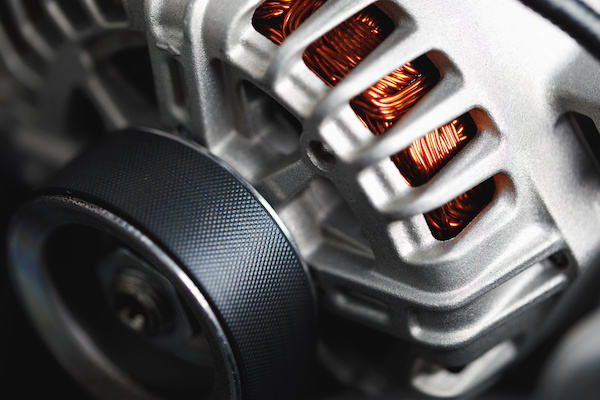
Most drivers are well aware of their battery and what it does. However, the battery is only one aspect of your vehicle's charging system, and it's not even the most important. To most mechanics, the most vital part of the system is the alternator.
The alternator is a mechanical device connected to the engine that runs off your car's serpentine belt. The alternator spins while the engine is operating, which converts mechanical energy into electrical power that powers all of your vehicle's electric features, including (but not limited to) the lights, radio, windows, and more.
All vehicle batteries have a full charge output of around 12 volts, which is plenty enough to start your motor. But when your engine is running, your alternator is usually creating additional voltage (occasionally up to 15 volts) due to the demand for specific electrical operations to work. When an alternator does not work correctly, not only will some of your power functions, such as windows and locks, malfunction, but your headlights might dim as well.
A few reasons might make an alternator go wrong, but bearing failure is the leading cause when an alternator dies. A bearing failure is an internal impediment that stops the rotor from spinning inside the alternator. Whenever this mechanism stops, your vehicle will stop generating the mechanical energy into electrical power. This failure can be caused by dirt and foreign objects that accidentally get built up inside the alternator. Over time, you can expect contaminants to disrupt parts from normal usage. Whenever you encounter this problem, the alternator may produce a loud noise or grinding sound.
If your alternator is experiencing difficulties, please take it to your trusted repair shop as soon as possible. At Dickerson Automotive, we have the resources and skills to check, diagnose, and replace your alternator in a timely manner. Come stop by our shop in Spanish Fork, UT or schedule your appointment online today.